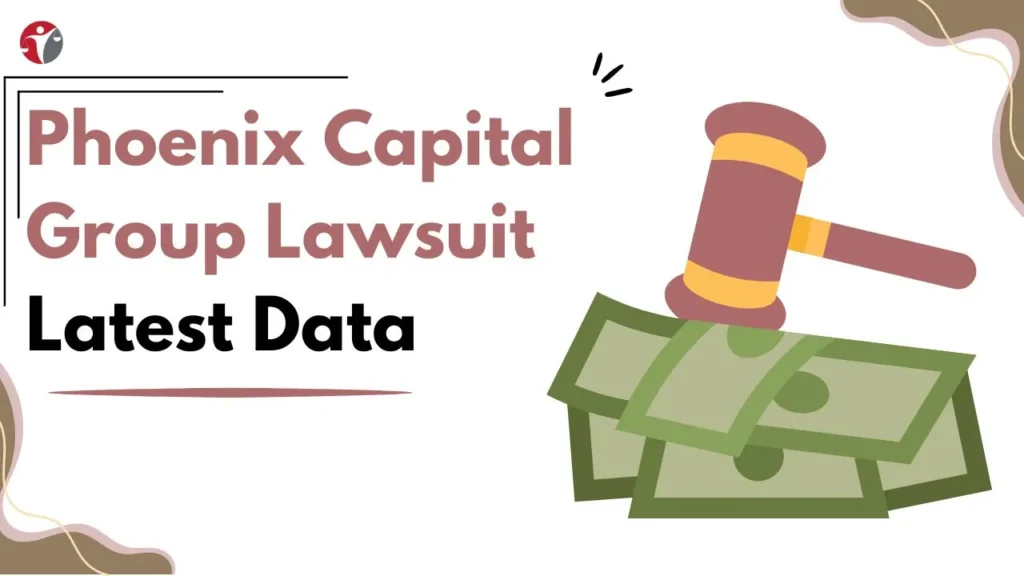Introduction to Phoenix Capital Group Lawsuit
Importance of Due Diligence in Investment Decisions
Due diligence involves thoroughly researching and assessing a company and its offerings before making investment decisions. This process is vital to minimize risks, especially when dealing with high-yield investments, which can be associated with higher risks, including market volatility, liquidity issues, and even potential fraud. Inadequate research can lead to significant financial losses, underscoring the importance of being well-informed.
Legal Context
Summary of the Legal Case
The case USCOURTS-tnmd-3_16-cv-00299 involves Phoenix Capital Group and focuses on legal disputes that could have implications for the company’s operations. The case includes detailed court proceedings with various legal arguments, motions, and outcomes, highlighting the complexities of the financial and legal challenges the company faces.
Nature of the Allegations
The specific allegations against Phoenix Capital Group in the case suggest possible legal and regulatory issues, which might concern potential investors. These allegations could involve financial misconduct, regulatory non-compliance, or other legal violations, all of which could impact the company’s reputation and investor trust.
Court Proceedings and Outcomes
The timeline of the court proceedings includes significant events such as hearings, rulings, and legal arguments. The outcomes of these proceedings provide insight into the legal standing of Phoenix Capital Group and may influence investor perceptions of the company’s credibility and reliability.
Investment Offerings
Overview of Investment Products
Phoenix Capital Group offers various investment products, with the 9% APY bonds being one of the most prominent. These bonds offer higher returns compared to traditional investment options like stocks or real estate, which typically have lower but more stable returns. Investors are often attracted to such high-yield bonds due to the potential for significant income, but these products come with their own set of risks.
Risk Assessment of Investment Offerings
Investing in high-yield products like the ones offered by Phoenix Capital Group can be risky. These risks include market volatility, economic downturns, and the potential for default, especially in uncertain economic times. High-yield investments are typically more volatile and less predictable than traditional investments, making them suitable only for investors with a high tolerance for risk.
Target Audience for Investment Products
The ideal investors for Phoenix Capital Group’s offerings are those who can handle high risk and are looking for significant returns. These investors should have a strong financial background and be comfortable with the possibility of loss. Additionally, they should have a diversified portfolio that can absorb potential losses from high-risk investments.
Trust and Legitimacy
Community Perception and Skepticism
There is considerable skepticism surrounding Phoenix Capital Group, particularly among online communities. Social media and forums like Reddit have highlighted concerns regarding the company’s practices and the legitimacy of its investment products. These discussions often reflect broader concerns about the risks of investing based on online advertisements or unverified claims.
User Testimonials and Experiences
User experiences shared online, particularly on Reddit, range from cautious optimism to outright skepticism. Some users have reported positive experiences, while others have expressed concerns about the company’s transparency and the real value of the investment opportunities offered. These testimonials provide a mixed picture, suggesting that while some investors have benefited, others have faced challenges or are wary of the risks involved.
Evaluating Credibility
To evaluate the credibility of Phoenix Capital Group, investors should look at several factors, including regulatory compliance, transparency in communication, and the company’s track record. Regulatory compliance, particularly with agencies like the SEC, is crucial for establishing trust. Investors should also verify any claims made by the company through independent research and consult financial advisors before committing to any investment.
Withdrawal Processes
Overview of Withdrawal Options
Understanding the withdrawal options and penalties is essential when considering an investment with Phoenix Capital Group. The company’s policies on withdrawals, including any penalties for early withdrawal, can significantly impact an investor’s liquidity and financial planning. It’s important for investors to review these policies thoroughly to ensure they align with their financial goals.
Importance of Liquidity in Investment Choices
Liquidity refers to how easily an investment can be converted into cash without affecting its market value. For investors, particularly those considering high-yield bonds, liquidity is a crucial factor. Investments that are difficult to withdraw from or that incur significant penalties for early withdrawal can pose a risk, especially in times of financial need.
Case Studies of Withdrawal Experiences
Examples from user experiences with Phoenix Capital Group highlight the importance of understanding withdrawal processes. Some investors have reported difficulties in accessing their funds, which underscores the need for careful consideration of liquidity when investing. Learning from these experiences can help potential investors make informed decisions and avoid common pitfalls.
Regulatory Framework
Overview of Relevant Regulations
Investment companies like Phoenix Capital Group are subject to various regulations that govern their operations. Key regulatory bodies, such as the Securities and Exchange Commission (SEC), play a crucial role in enforcing compliance and protecting investors. These regulations are designed to ensure transparency, fairness, and accountability within the financial markets.
Importance of Compliance
Compliance with regulatory standards is essential for maintaining investor trust and the long-term viability of an investment firm. Non-compliance can lead to legal action, fines, and a loss of investor confidence. For investors, it’s important to verify that a company adheres to all relevant regulations before committing funds, as this can significantly impact the safety and security of their investment.
Conclusion
Phoenix Capital Group presents high-yield investment opportunities that are attractive to certain types of investors. However, these investments come with significant risks, including market volatility, liquidity challenges, and potential legal issues. The company’s involvement in legal disputes and the mixed feedback from online communities further highlight the need for thorough due diligence.
Recommendations for Investors
Before investing in Phoenix Capital Group or similar high-yield opportunities, it’s crucial to conduct extensive research. Investors should consult financial advisors, review all available information about the company, and carefully consider their risk tolerance. Ongoing monitoring of the investment is also essential to respond quickly to any changes in the market or the company’s financial health.
Final Thoughts on Phoenix Capital Group
While Phoenix Capital Group offers potentially lucrative investment products, the associated risks cannot be ignored. Investors must be diligent, informed, and cautious when considering such opportunities. By taking the necessary steps to understand the risks and rewards, investors can make more informed decisions and protect their financial well-being.
Also Read: marc gabelli greenwich, a visionary in the business world
FAQs
1. What is Phoenix Capital Group?
Phoenix Capital Group is a financial company that offers investment products, including high-yield bonds with an attractive 9% Annual Percentage Yield (APY). The company aims to provide lucrative investment opportunities, especially in a low-interest-rate environment.
2. What types of investment products does Phoenix Capital Group offer?
The primary investment product offered by Phoenix Capital Group is high-yield bonds, particularly those promising a 9% APY. These bonds are designed for investors seeking higher returns compared to traditional investment options like stocks or real estate.
3. What are the risks associated with investing in Phoenix Capital Group?
Investing in high-yield products carries significant risks, including market volatility, potential default, and liquidity issues. These investments can be more unpredictable than traditional options, making them suitable primarily for investors with a high risk tolerance.
4. What should investors consider before investing?
Investors should conduct thorough due diligence, including researching the company’s background, understanding the nature of the investment products, and assessing their own risk tolerance. Consulting with financial advisors is also advisable.
5. What legal issues has Phoenix Capital Group faced?
Phoenix Capital Group is involved in a legal case (USCOURTS-tnmd-3_16-cv-00299) that raises concerns about potential financial misconduct and regulatory non-compliance. The outcomes of this case may affect the company’s reputation and investor trust.
6. How do community perceptions influence investment decisions?
There is considerable skepticism surrounding Phoenix Capital Group, especially on platforms like Reddit. Online discussions often reflect concerns about the legitimacy of the company’s investment products and the risks associated with investing based on social media advertisements.
7. What are the withdrawal options for investors?
Investors should carefully review Phoenix Capital Group’s withdrawal policies, as there may be penalties for early withdrawal. Understanding these policies is crucial for managing liquidity and financial planning.
8. Why is liquidity important in investment choices?
Liquidity refers to how easily an investment can be converted into cash. For high-yield investments, understanding liquidity is essential, as investments that are difficult to withdraw from can pose risks, especially in times of financial need.












